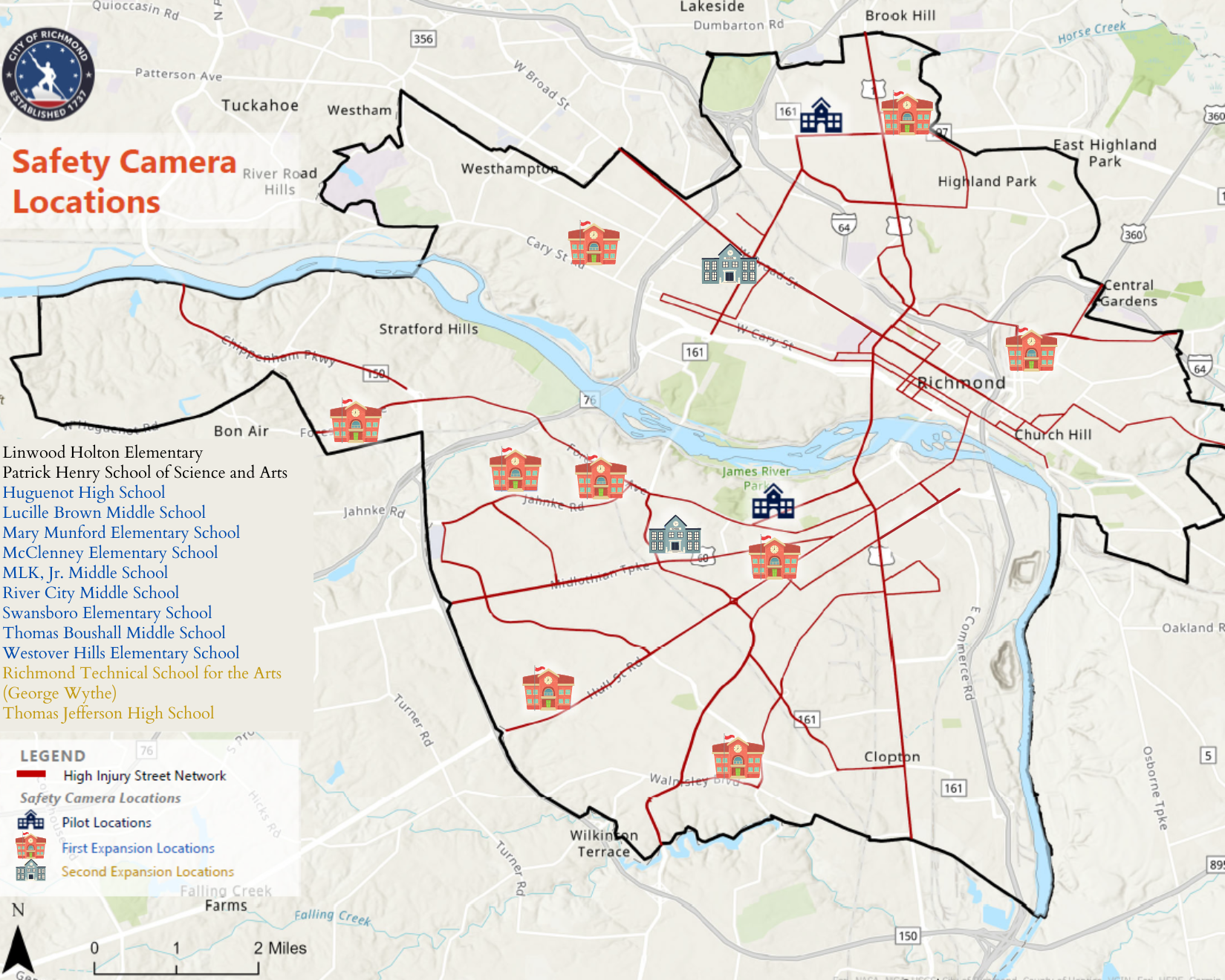Richmond, VA –Mayor Levar Stoney is honored to announce the 13-mile alignment of the Fall Line Trail through the City of Richmond. The 13-mile regional trail converses through the City of Richmond and was designed to spur development and improve access across the city. The ceremonial groundbreaking for the construction of the Bryan Park segment will be held on August 28th, 2024 at 11:00 am. at the playground. The park is located at 4308 Hermitage Road.
“I’m excited to be breaking ground on this game-changing asset for the Richmond region,” said Mayor Levar Stoney. “With this intentional investment, the region is solidifying itself as the premier destination for outdoor recreational activity in Commonwealth of Virginia. The Fall Line Trail provides the City with another tool in the toolbox to build upon our national profile as the best place to live, do business and raise a family.”
Serving as a gateway into the city, the Bryan Park groundbreaking represents a major milestone for the city. One of fourteen (14) segments of the Fall Line Trail, Bryan Park will not only house the trail but also serve as a trailhead for thousands of existing and future park visitors. Trailhead amenities include parking, bathrooms, picnic areas, water fountains, recreational space, and picnic shelters. Having these facilities at the trailheads allows users of the trail to rest, refuel, and enjoy the natural surroundings of Richmond’s Bryan Park.
“The Office of Equitable Transit and Mobility is excited to have this groundbreaking event for the Fall Line Trail (FLT) in one of Richmond’s historic parks,” said DPW Deputy Director Dironna Moore Clarke. “The city has been working with the region through the Central Virginia Transportation Authority (CVTA) on the FLT Project, as a regional collective investment. Watching it grow and unfold, and now we’re kicking off the Fall Line Trail gateway into Bryan Park, is so exciting. One of fourteen segments in Richmond, the Bryan Park FLT will enhance accessibility and make it easier for residents to enjoy the park and its amenities. It represents the city’s commitment to enhancing community connectivity and promoting sustainable transportation options.”
“As the primary funder for the Fall Line and many other regionally significant transportation projects, the Central Virginia Transportation Authority is thrilled to see the City of Richmond moving forward with implementing their segments of this once-in-a-lifetime regional transportation corridor,” said Chet Parsons, Executive Director of CVTA. “There are so many exciting parts of the Fall Line that will be developed through the City and this celebration is a great way to kick-start that process. We look forward to the Fall Line providing health, economic, and transportation benefits to the region for years to come.”
The 43-mile Fall Line Trail is an example of a project developed and implemented through collaboration of multiple localities, the state, and local community organizations. The final path for the shared-use active transportation trail is under development with extensive public input and will connect seven localities, from the Town of Ashland, through Hanover and Henrico Counties, the City of Richmond, Chesterfield County, and the Cities of Colonial Heights and Petersburg.
“The City of Richmond is taking a significant step toward realizing our region’s vision of a more connected and accessible Richmond,” said Jon Lugbill, Executive Director of Sports Backers. “This is the beginning of Richmond’s 13-mile segment of trail that is more than just a paved trail for people to walk and bike—it is a catalyst for development and a gateway to our city. We’re proud to be part of this milestone that enhances Bryan Park for all users and enriches our community.”
Like the very successful Virginia Capital Trail, the Fall Line Trail will improve the safety of residents who walk and bike to access buses and trains, for personal recreation and professional interest. Additionally, the Trail’s path through parks, across the James River, and adjacent to commercial and cultural centers, will draw tourist to well established attractions while promoting economic development in areas of the city that will benefit from transit-oriented development.
Investments in shared-use paths for active transportation have been very successful across America, such as in Atlanta, Georgia and Indianapolis, Indiana. The City of Richmond and the greater region engaging the Fall Line Trail believe this effort will prove impactful for economic development, social cohesion, and an improved overall quality-of-life.
For information about the trail visit:








